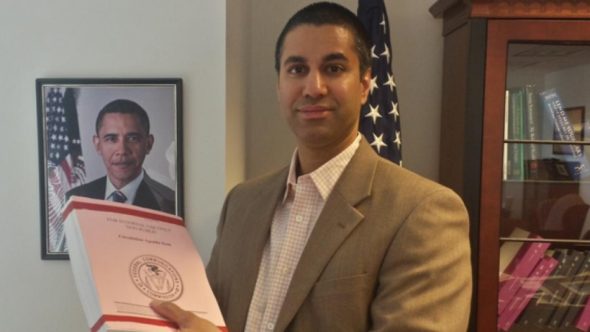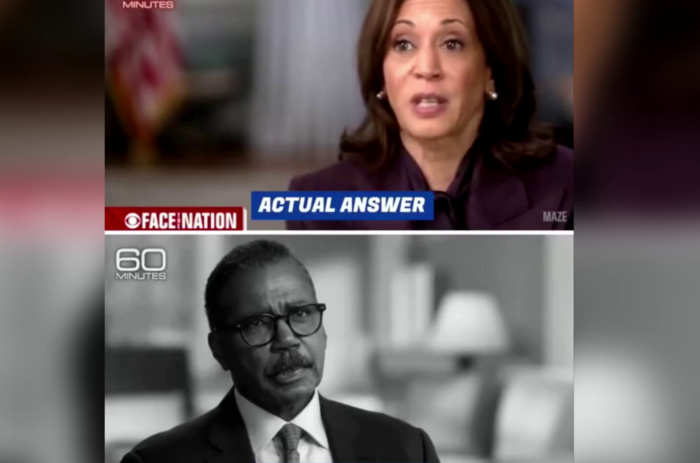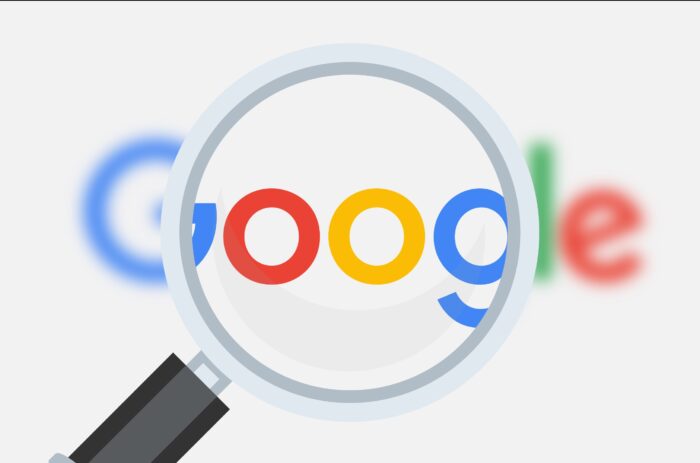print Print...
Directions
-Read the excerpt below from Joseph Rossell's post at MRC's Business and Media on Feb. 9.
-Read "Types of Media Bias" in the right column. Then answer the questions.
In the almost three months since President Barack Obama announced his support for new government rules to achieve “net neutrality” and a “free and open Internet,” ABC, CBS and NBC have barely covered the issue, but did have plenty of time to cover the NFL’s “Deflategate” story.
Chairman of the Federal Communications Commission (FCC) Tom Wheeler said on February 4 that he backed Obama’s plan to reclassify the Internet as a public utility under the government agency’s Title II authority.
FCC commissioner Ajit Pai opposes the plan and said in a press release on February 6 that the plan “marks a monumental shift toward government control of the Internet.”
Despite its importance, the broadcast news networks’ morning and evening shows dedicated only 3 minutes, 38 seconds of coverage to these potential regulations over the Internet since Obama’s announcement November 10, 2014 through February 9, 2015. They almost entirely ignored opposition to the plan.
By way of contrast, the networks spent 67 minutes, 49 seconds covering the “Deflategate” scandal during less than one week in January, nearly 19 times more than net neutrality over a period of almost three months.
Phil Kerpen, President of American Commitment, told MRC Business:
“There has been almost no coverage of the president strong-arming what is supposed to be an independent agency (the FCC), or the highly questionable policy he has proposed that would reverse the past two decades of Internet policy and install a heavy-handed regulate-and-tax alternative.”
When they did cover the issue, the networks were almost entirely uncritical in their reporting.
CBS: On November 11, CBS’s “This Morning” co-host Gayle King echoed the White House’s talking points, saying that Obama wanted the FCC “to adopt tough rules to protect a free and open internet.”
Ms. King said that “broadband service providers want to charge higher fees” for Internet access, which could “result in the blocking or slowing down of content for some.” Yet, she failed to explain how the president’s proposal would improve this situation or describe the plan’s potential costs.
ABC: ABC News only mentioned the proposed regulations once during a segment on “World News” January 20. While previewing the State of the Union address, chief White House correspondent Jonathan Karl vaguely referenced that Obama wanted to expand “faster, cheaper Internet access” for the “middle class.”
NBC: Segments on the other networks also brought up the proposal only in passing. On “Nightly News” December 19, 2014, NBC’s senior White House correspondent Chris Jansing highlighted “immigration, climate change and internet regulations” as policies on which Obama was “pushing the limits of his executive authority” and “defying newly empowered Republicans.” Jansing did not say how or why Republicans disagreed with the president on any of these policies.
The only instance when the networks actually explained opposition to Obama’s plan occurred during a news brief on “Nightly News” November 10, 2014. Anchor Brian Williams said, “Many Republicans said publically today if the president has his way, it would hurt innovation and job growth.” Williams did not expand on this statement.
Although the networks avoided airing dissenting opinions, critics have long said that giving the FCC greater control over the Internet could have severe impacts on freedom of speech and the economy. Former FCC commissioner Robert M. McDowell said that “FCC ‘oversight of the political process’ through more Internet regulations sounds eerily like political speech controls,” in an op-ed for The Washington Post on July 14, 2014.
Pai tweeted a picture of the plan on January 6, writing that “I wish the public could see what’s inside.”
(from mrc.org)

“I have studied the 332-page plan in detail, and it is worse than I had imagined.” FCC Commissioner Ajit Pai holding Chairman Tom Wheeler’s net-neutrality proposal.
“Net Neutrality“
FCC Commissioner Ajit Pai opposes FCC Chairman Tom Wheeler’s aggressive net neutrality proposal, which seeks to reclassify and regulate the Internet as a public utility.
“Today, Chairman Wheeler announced that he will ask the FCC to adopt President Obama’s plan to regulate the Internet,” Pai said in a statement Feb. 4. “I strongly oppose the president’s plan, which will raise consumers’ broadband bills, slow broadband speeds, and reduce competition…”
Pai was joined by lobbyists, advocacy groups and lawmakers from Washington D.C. to Silicon Valley, many of whom oppose Wheeler’s proposed net neutrality regulation, which would, among other things, regulate Internet service providers (ISPs) like telephone companies and ban them from establishing tiered lanes of Internet traffic. Such lanes would be priced based on speed and bandwidth use.
“President Obama’s plan marks a monumental shift toward government control of the Internet. It gives the FCC the power to micromanage virtually every aspect of how the Internet works,” Pai said. “The plan explicitly opens the door to billions of dollars in new taxes on broadband… These new taxes will mean higher prices for consumers and more hidden fees that they have to pay.”
In his initial cursory overview of the plan, the commissioner said it would hinder broadband investment, slow network speed and expansion, limit outgrowth to rural areas of the country and reduce Internet service provider (ISP) competition.
“The plan saddles small, independent businesses and entrepreneurs with heavy-handed regulations that will push them out of the market,” Pai said. “As a result, Americans will have fewer broadband choices. This is no accident. Title II was designed to regulate a monopoly. If we impose that model on a vibrant broadband marketplace, a highly regulated monopoly is what we’ll get.”
Pai said that his comments on the plan Friday would be the first of many as he reviews the plan himself in the weeks prior to the Feb. 26 vote.
To accurately identify different types of bias, you should be aware of the issues of the day, and the liberal and conservative perspectives on each issue.
Types of Media Bias:Questions
1. What types of bias do NBC, ABC and CBS display by not reporting on opposition to and concerns over the federal government’s new regulations?
2. Why do you think the “Big Three” networks choose not to do any serious reporting on such a wide-ranging government regulation being pushed by President Obama?
3. Ask a parent what he/she knows about net neutrality and about the pros and cons of the regulation.
Scroll down to the bottom of the page for the answers.
Resources
Read FCC Commissioner Ajit Pai’s press release “President Obama’s Plan to Regulate the Internet” at: transition.fcc.gov
Answers
1. By not reporting on opposition to and concerns over the federal government’s new regulations, NBC, ABC and CBS display bias by omission and story selection (and spin in the brief mention they do make of President Obama’s plan for net neutrality). [Note: President Obama does have a plan to implement net neutrality. It is on the White House website on a page titled: “Net Neutrality: President Obama’s Plan for a Free and Open Internet”]
2. Opinion question. Answers vary.
3. Answers vary.



